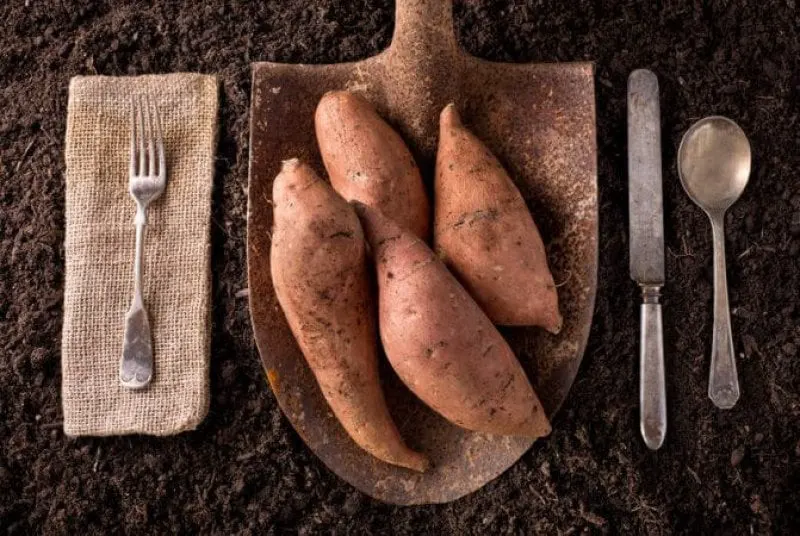In ‘urgent plea’ for organic farming to allow biotechnology, researchers say Europe’s Farm to Fork program ‘will likely fail’ without it
In ‘urgent plea’ for organic farming to allow biotechnology, researchers say Europe’s Farm to Fork program ‘will likely fail’ without it


An international research team, including scientists from Wageningen University & Research [WUR] in the Netherlands, says that unless the EU allows novel breeding techniques such as gene editing in organic agriculture, Europe’s Farm to Fork strategy will likely fail to deliver on its promise of moving towards realizing the Sustainable Development Goals [SDGs]. In a paper published in Trends in Plant Science, the authors make an urgent plea for unification of these two farming methods, saying that organic farming and modern biotechnology both have their specific strengths in contributing to the SDGs — combining both approaches could unleash important synergies.
…
“This is especially true for gene editing, a new precision tool used in plant breeding,” says Richard Visser, professor of Plant Breeding at WUR. “Gene editing offers unique opportunities to make food production more sustainable and to further improve the quality, but also the safety, of food especially in those crops that are cross pollinated and/or vegetatively propagated. With the help of these new molecular tools, more robust plants can be developed that deliver high yields for high-quality nutrition, even with less fertilizers.”
The authors expect that implementation of legal change is unlikely under current political realities. “Many EU and national policymakers and interest groups seem to prefer co-existence policies, where organic production and modern biotechnology are strictly separated,” says Wesseler.
Read the original post

 | Videos | More... |

Video: Nuclear energy will destroy us? Global warming is an existential threat? Chemicals are massacring bees? Donate to the Green Industrial Complex!
 | Bees & Pollinators | More... |

GLP podcast: Science journalism is a mess. Here’s how to fix it

Mosquito massacre: Can we safely tackle malaria with a CRISPR gene drive?

Are we facing an ‘Insect Apocalypse’ caused by ‘intensive, industrial’ farming and agricultural chemicals? The media say yes; Science says ‘no’
 | Infographics | More... |

Infographic: Global regulatory and health research agencies on whether glyphosate causes cancer
 | GMO FAQs | More... |

Why is there controversy over GMO foods but not GMO drugs?

How are GMOs labeled around the world?

How does genetic engineering differ from conventional breeding?
 | GLP Profiles | More... |

Alex Jones: Right-wing conspiracy theorist stokes fear of GMOs, pesticides to sell ‘health supplements’




 Trust issues: What happens when therapists use ChatGPT?
Trust issues: What happens when therapists use ChatGPT? Fighting deforestation with CO2: Biotechnology breakthrough creates sustainable palm oil alternative for cosmetics
Fighting deforestation with CO2: Biotechnology breakthrough creates sustainable palm oil alternative for cosmetics Viewpoint: Video — Big Solar is gobbling up productive agricultural land and hurting farmers yet providing little energy or sustainabilty gains
Viewpoint: Video — Big Solar is gobbling up productive agricultural land and hurting farmers yet providing little energy or sustainabilty gains California, Washington, Oregon forge immunization alliance to safeguard vaccine access against federal undermining
California, Washington, Oregon forge immunization alliance to safeguard vaccine access against federal undermining Viewpoint — Fact checking MAHA mythmakers: How wellness influencers and RFK, Jr. undermine American science and health
Viewpoint — Fact checking MAHA mythmakers: How wellness influencers and RFK, Jr. undermine American science and health 30-year-old tomato line shows genetic resistance to devastating virus
30-year-old tomato line shows genetic resistance to devastating virus The free-range chicken dilemma: Better for birds, but with substantial costs
The free-range chicken dilemma: Better for birds, but with substantial costs ‘You have to treat the brain first’: Rethinking chronic pain with Sanjay Gupta
‘You have to treat the brain first’: Rethinking chronic pain with Sanjay Gupta
